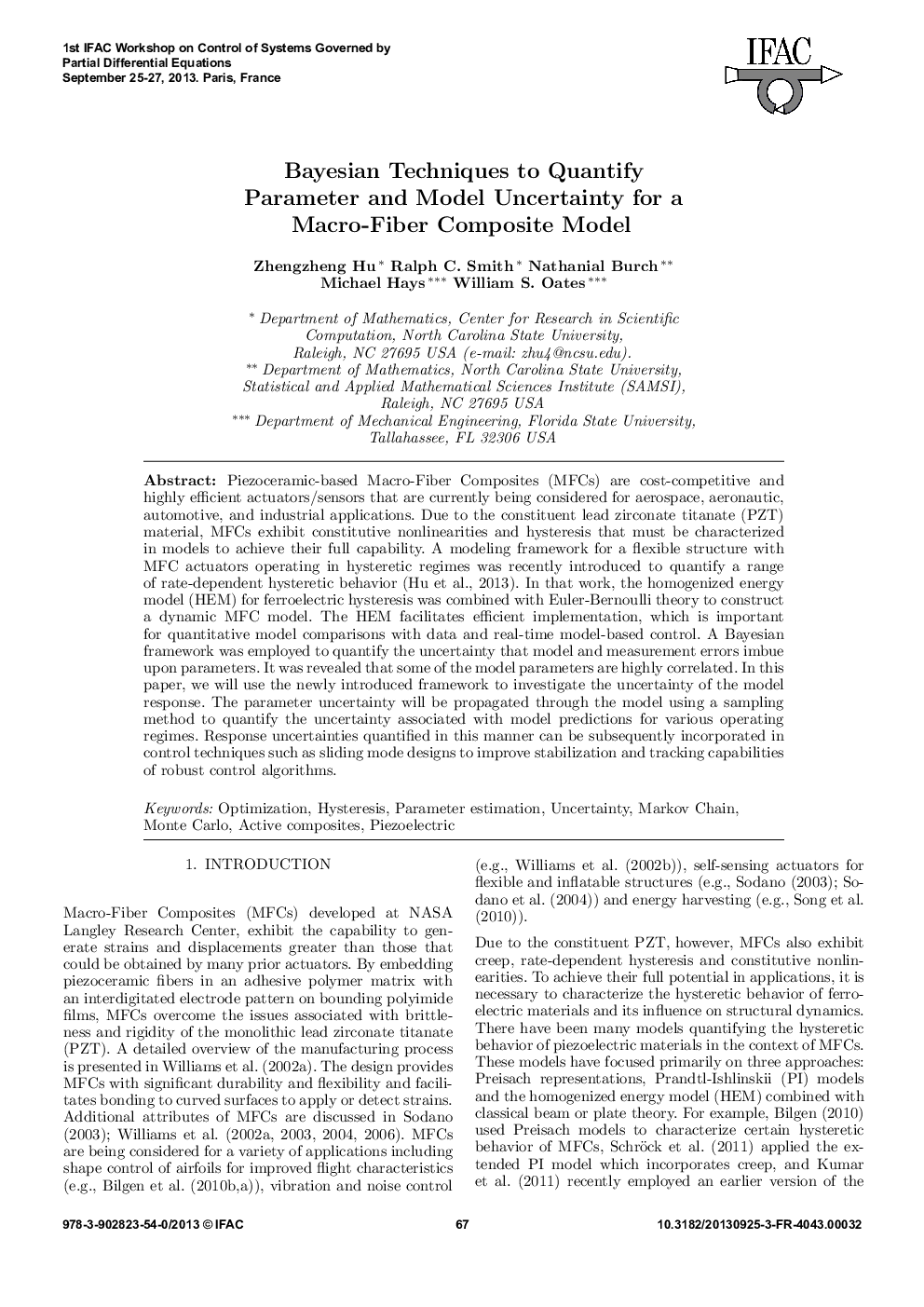| Article ID | Journal | Published Year | Pages | File Type |
|---|---|---|---|---|
| 715024 | IFAC Proceedings Volumes | 2013 | 6 Pages |
Piezoceramic-based Macro-Fiber Composites (MFCs) are cost-competitive and highly efficient actuators/sensors that are currently being considered for aerospace, aeronautic, automotive, and industrial applications. Due to the constituent lead zirconate titanate (PZT) material, MFCs exhibit constitutive nonlinearities and hysteresis that must be characterized in models to achieve their full capability. A modeling framework for a flexible structure with MFC actuators operating in hysteretic regimes was recently introduced to quantify a range of rate-dependent hysteretic behavior (Hu et al., 2013). In that work, the homogenized energy model (HEM) for ferroelectric hysteresis was combined with Euler-Bernoulli theory to construct a dynamic MFC model. The HEM facilitates efficient implementation, which is important for quantitative model comparisons with data and real-time model-based control. A Bayesian framework was employed to quantify the uncertainty that model and measurement errors imbue upon parameters. It was revealed that some of the model parameters are highly correlated. In this paper, we will use the newly introduced framework to investigate the uncertainty of the model response. The parameter uncertainty will be propagated through the model using a sampling method to quantify the uncertainty associated with model predictions for various operating regimes. Response uncertainties quantified in this manner can be subsequently incorporated in control techniques such as sliding mode designs to improve stabilization and tracking capabilities of robust control algorithms.
